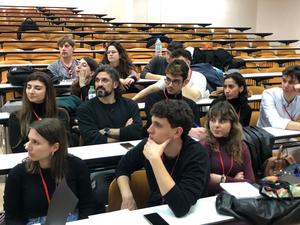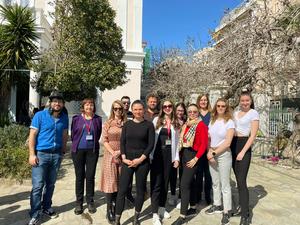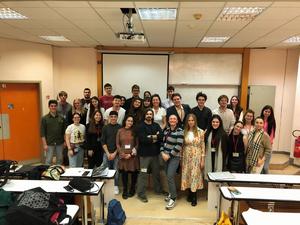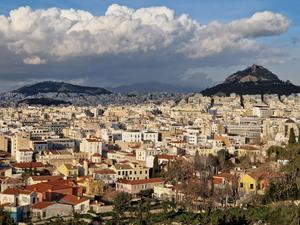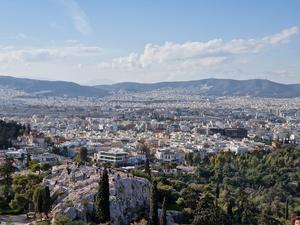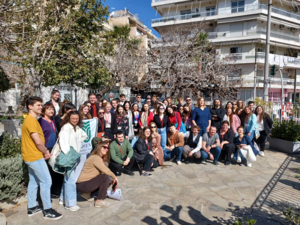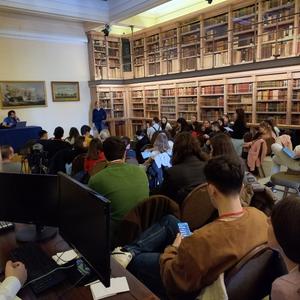In the framework of the EUsecure project led by the Ludovika-University of Public Service and implemented with the support of the European Union, a Winter University course was held at the University of Piraeus in Greece from 28 February to 4 March 2023. The project involved five partner universities from five countries (Hungary, Romania, Greece, Italy and Portugal), which, similarly to the Summer University held in Lecce, Italy, in the summer of 2022, delegated ten students to represent their countries. Students from all the faculties of our university travelled to the Mediterranean country to testify to the knowledge they had acquired during their studies. The Hungarian teaching team consisted of Anna Molnár, Boglárka Koller, Éva Jakusné Harnos, András Varga and Zoltán Goda.
The EUSecure project aims to develop a transdisciplinary elective course (EU Security Resilience and Sustainability), a simulation exercise, a MOOC (open online learning platform) and the EULite (secondary school version). The course itself consists of 15 modules (one module = one weekly topic = one policy area) and the used teaching methods combine traditional and online learning and are complemented by simulation exercises.
The four other universities participating in the UPS-led project (University of Piraeus, Greece (UNIPI), Fernando Pessoa University, Portugal (UFP), University of Salento, Italy (UNISAL) and Sapientia Hungarian University of Transylvania, Romania (SAPIENTIA)) were also represented in the winter seminar course with their own student teams and lecturers. In this way, the participants were able to develop their knowledge and skills in a rich and diverse international environment, to successfully tackle the major security challenges facing Europe in the future.
Throughout the week, students were introduced to different areas of security- and defence policy through interactive, informative and high-quality presentations. The programme was varied and colourful, with several presentations in each time slot. In addition to cybersecurity, health and water security, the sessions also covered megatrends and fake news and included a short test to assess their knowledge.
In addition to the lectures, students also had the opportunity to exchange knowledge with each other. Participants were encouraged to express their thoughts, ideas and opinions on the presentations. Students of different nationalities had the possibility to debate in groups, solve legal cases, and participate in EU simulations representing a Member State of the European Union. For example, the EU simulation held by András Varga required in-depth research and preparation from the participants: they could express their views on the creation of a common European Health Union or in the Megatrends module held by Boglárka Koller, students debated the challenges of artificial intelligence and climate change.
In addition to the professional programmes, there was also some time to explore Piraeus and also Athens, as the capital is close to the university. A visit to the Acropolis, the Greek capital's biggest landmark, and a delicious gyros were also included.
During the study trip, the students gained a wealth of new knowledge in the field of international security- and defence-policy, which they will be able to use in their studies. And for the lecturers, the Winter University was an opportunity to gain experience and network.
For more information on the international project, please visit: https://www.eusecure.org/
